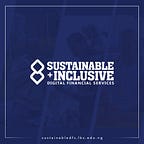Financial Consumer Protection: Who is Responsible?
Financial consumer protection dates back to usury laws and moneylenders legislation. Modern consumer protection law is relatively new in Nigeria.
The Consumer Protection Council Act (PDF) was enacted in 1992. However, consumer laws are still neither comprehensive nor coherent. They are largely scattered across various legislation and common law rules. The Federal Competition and Consumer Protection Commission Act of 2019 has updated aspects of the law on consumer sales and services but is yet to upscale monitoring and supervision significantly.
All markets require effective information and interactional institutions between suppliers and consumers for their effective functioning and to avoid market failure, not least financial markets. Unimpeded consumer access, protection, redress and empowerment are imperative for effective financial systems.
In an increasingly digital world, where there’s a lack of financial literacy and sophistication of the average consumer, effective financial consumer protection is more important than ever. Financial systems performance hinges ever more critically on adept risk based consumer protection and supervision. Financial stability, financial integrity, and financial consumer protection are mutually reinforcing, interdependent and must be simultaneously advanced.
There are several international standards for financial consumer protection supervision, such as the G20/OECD High-Level Principles on Financial Consumer Protection (HLPs) and the Effective Approaches (EAs) [PDF].
The principles cover the following areas:
(1) the legal framework and supervisory mandate;
(2) disclosure and transparency;
(3) financial education and awareness;
(4) responsible business conduct of pension services providers and their authorized agents; and
(5) complaints and redress.
The Central Bank of Nigeria (CBN), issued the Consumer Protection Framework (PDF) in 2016 and the Consumer Protection Regulations (PDF) in December 2019. The regulations aim to install global best practices.
Earlier in October, there were reports about the concerns and resolve of the National Assembly to investigate complaints of excessive and illicit charges by commercial banks on customers’ accounts. It also directed CBN to do the same and to effect regulatory remedies to review charges downwards. CBN’s Consumer Protection Regulations prescribe boiler plate provisions for fair treatment of consumers, information disclosure mandates, and responsible business conduct, complaints and redress mechanisms and processes. Although, the Nigerian Sustainable Banking Principles appear to be concerned with environmental and social sustainability issues, they reflect ethical principles of corporate social responsibility and have been in place long enough for assimilation by operators.
Financial consumer protection goes beyond legislative and regulatory standard setting, supervision and monitoring. There is a big role for operators to play, as aptly captured in the high level principle of responsible business conduct. Part Four of the CBN Consumer Protection Regulations adequately specifies the requisite rules. The Executive Compliance Officer is charged with oversight of internal dispute resolution processes and frameworks. Penalties can be levied personally on officers responsible for persistent defaults.
Perhaps there is now need to enforce personal liability for certain levels of consumer infractions on compliance officers and CEOs, apart from the penalties levied on the organization? The ‘Responsible officer” according to the CPR should be so construed, since operating staff will not go out of line unless top management cultivates or allows a culture of corporate social irresponsibility. The formation of an array of consumer protection associations to help aggregate and promote consumer rights and redress in the financial sector is also necessary. The regulations should assign them a role to help with co-regulation.
Other measures are required to move corporate governance and consumer protection to the next level of voluntary and substantive self-regulation that can help win the trust of consumers and accelerate financial inclusion in Nigeria? Let the conversation begin in earnest!
— — — — — — — — — — — — — — -
Professor Olawale Ajai is the Policy Lead at the Sustainable and Inclusive Digital Financial Services Initiative
